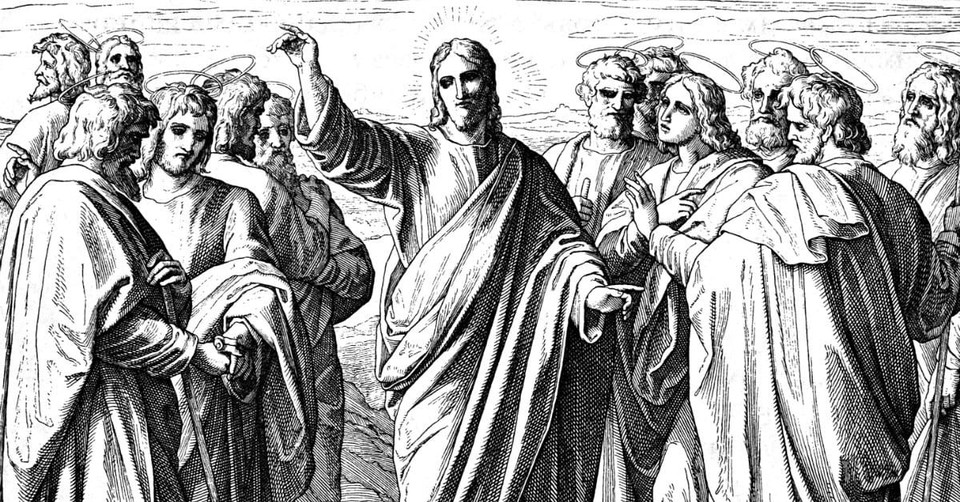Who Are the Apostles in the Bible and Why Are They Important?

The word apostle means one who is sent out. Jesus, himself, was the very first apostle. Hebrews 3:1 says that he was declared to be Apostle and High Priest. He was sent out by the Father to bring mankind hope.
An apostle is a disciple of Jesus Christ that was specifically called by Jesus (in person).
The Initial 12 Called Directly by Jesus
When Jesus began his earthly ministry, he called 12 men to follow and learn from him. They were: Simon Peter, Andrew, James, John, Philip, Bartholomew, Matthew, Thomas, James, Thaddaeus, Simon, and Judas Iscariot. In the Bible, Jesus never explained the criteria he used to pick out these 12 men. The Bible doesn’t say this expressly, but I feel that he called them simply because they were available. They didn’t choose Jesus; he chose them (John 15:16).
A Replacement Needed
Of course, one of those 12 apostles was Judas Iscariot so this brought the number of apostles down to 11. Peter knew that Psalm 109:8 said that a person found guilty should be replaced in a position. They needed to pray and find a replacement. This replacement needed to be among the men that followed Jesus throughout his earthly ministry. They chose two men, Joseph and Matthias. Then, they prayed that the Lord would show them which one. They cast lots (a common method during those days) and Matthias was selected (Acts 1:20-26).
Now, they had 12 apostles again. These men were called to get the church started after Jesus’s death and resurrection. They began the process of spreading the word about Jesus’ way. They laid the foundation that Jesus started.
Paul Called in a Miraculous Vision
Paul, formerly Saul, was added because of his encounter with the resurrected Christ on the road to Damascus (Acts 9:3-6). As Saul was approaching Damascus, a light from heaven suddenly shone down around him. He fell to the ground and heard the Lord’s voice. Another believer, Ananias, also had a vision where Jesus said that Saul had been chosen to carry the message as well (Acts 9:10-15). Specifically, in Acts 9:15, the Lord spoke in Ananias’s vision, “Go, for Saul is my chosen instrument to take my message to the Gentiles and to kings, as well as to the people of Israel.” That sounds like it fits the definition of apostle.
Thirteen Apostles or More?
Acts 13:2 mentions that the Holy Spirit appointed Barnabas and Saul for special work which they have been called. And Romans 16:7 says that Andronicus and Junia were highly respected among the apostles and were followers of Christ before Paul. 2 Corinthians 8:23 uses the Greek word for apostle for Titus. The same for Epaphroditus in Philippians 2:25. Silas, Timothy, and Apollos were also referred to similarly. The Apostle Paul seemed to use “apostle” terminology to describe multiple people that were sent to do Christ’s work. But maybe Paul wasn’t calling these men apostles. Maybe he was just saying that they were doing apostolic work. They did help spread the gospel.
Apostles Beyond the 1st Century?
Some people think that all missionaries from the first century to today are considered apostles because they are sent out to spread the good news of the gospel. Some religious sects use the word “apostle” as a title for some of their leaders, even today.
Even though he used some apostolic terminology for believers other than the apostles, Paul did separate out apostles from other disciples in 1 Corinthians 12:27-31 when he spoke about the gifts of the members of the church body. First are apostles, he wrote. Then prophets, teachers, miracle workers, healers, helpers, leaders, etc. He also did this in Ephesians 4:11. He mentions apostles, prophets, evangelists, pastors, and teachers. There are plenty of important jobs in the body of Christ other than apostle.
Acts 10:39-43 depicts specific criteria for apostles that other disciples don’t have:
“And we apostles are witnesses of all he did throughout Judea and in Jerusalem. They put him to death by hanging him on a cross, but God raised him to life on the third day. Then God allowed him to appear, not to the general public, but to us whom God had chosen in advance to be his witnesses. We were those who ate and drank with him after he rose from the dead. And he ordered us to preach everywhere and to testify that Jesus is the one appointed by God to be the judge of all—the living and the dead. He is the one all the prophets testified about, saying that everyone who believes in him will have their sins forgiven through his name.”
The Title of Apostle is Special
I like the idea that the term apostle be limited to the initial 11, plus Matthias and Paul. They were all full-fledged witnesses to the Lord Jesus Christ’s glory on earth and after the resurrection. Jesus became the Cornerstone of the faith and those 13 laid the rest of the foundation. We don’t have to set the foundation; we just have to trust it. So, there’s no need for people to be apostles today.
If you use the term apostle too loosely, all believers in all times could be considered apostles because we’re all sent out to spread the good news of Jesus. We’re disciples and/or witnesses that are sent to share how the Lord changed us. But we’re not all apostles. If we were, why would Paul warn us about false apostles in 2 Corinthians 11:12-13? He says that people who boast that their work is just like the initial apostles’ work is a false apostle and a deceitful worker.
Disciples May Have a Special Blessing
Disciples are called to a similar task as the apostles, except without setting the foundation. The disciple may even have an extra blessing that the apostles didn’t have because Jesus said to Thomas, “You believe because you have seen me. Blessed are those who believe without seeing me.” (John 20:29)
An Inaugural Work
The apostles are to be applauded for their inaugural work of getting the church started. They were all martyred for their allegiance to Jesus’s ways and teachings. They gave their very lives for the cause. One day, we will see the new Jerusalem with a wall that includes 12 foundation stones and on them will be written the names of the 12 apostles of the Lamb (Revelation 21:14). I wonder which 12 it will be? Will Paul be included? Will Matthias? Could Judas still be counted as an apostle? Matthew 27:3-4 seems to imply that he was filled with remorse and admitted his sins. However, he may not have prayed for forgiveness. He may have only regretted the position he found himself in because of his sin and that’s not the same as true forgiveness.
What is More Important than a Title?
What is even more important than the titles of various believers? Their teaching. Teaching in the church today should be apostolic teaching:
- Teaching based on the original apostles’ doctrine
- Teaching based on the foundation of the church
- Teaching based solely on the Scriptures
- From Genesis through Revelation
- Not taking away anything
- Not adding anything
The Main Thing
Whether someone is an apostle or a disciple, the most important thing is this: Christ died for our sins, just as the Scriptures said (1 Corinthians 15:3). For there is only one message of good news that should be preached. We need to defend the faith that God has entrusted once for all time to his holy people (Jude 1:3).
This is how community is formed. By sticking to Jesus Christ as the Cornerstone and the apostles’ foundational teaching, we can have fellowship, pray together, and live together in grace, mercy, and love. There’s no other way to have true fellowship with one another.
Jennifer Heeren loves to write and wants to live in such a way that people are encouraged by her writing and her attitude. She loves to write devotional articles and stories that bring people hope and encouragement. Her cup is always at least half-full, even when circumstances aren’t ideal. She regularly contributes to Crosswalk. She lives near Atlanta, Georgia with her husband. Visit her at her website and/or on Facebook.
This article is part of our People from the Bible Series featuring the most well-known historical names and figures from Scripture. We have compiled these articles to help you study those whom God chose to set before us as examples in His Word. May their lives and walks with God strengthen your faith and encourage your soul.
Story of Noah: 10 Theological Truths
4 Things You May Not Know About Abraham in the Bible
20 Facts You May Not Know About Moses from the Bible
Who Was Mary Magdalene in the Bible?
Who Were the 12 Disciples of Jesus?
Who Was Isaiah & Why Was He Important?
The Bible Story of Queen Esther
The Limits of Satan in this World
The Bible Story of Elijah
The Life of Ruth - 5 Essential Faith Lessons
Photo credits: ©Thinkstock/Ruskpp
Originally published February 25, 2019.







